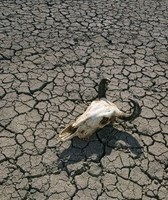Part 1 of a multipart series
 Two years ago I wrote a piece called, Planning To Go With the Flow, in which I described a strategy for launching any endeavor, whether that be a new business, a creative project, or even starting a family. I explained the necessity of having a ‘purpose’ to one’s cause—what Aristotle called the final cause—and then constructing a blueprint to achieve that cause. Once the cause is determined, I explained, it is wholly appropriate to research, plan, influence, seek help and so on—what I call the planning or pushing stage.
Two years ago I wrote a piece called, Planning To Go With the Flow, in which I described a strategy for launching any endeavor, whether that be a new business, a creative project, or even starting a family. I explained the necessity of having a ‘purpose’ to one’s cause—what Aristotle called the final cause—and then constructing a blueprint to achieve that cause. Once the cause is determined, I explained, it is wholly appropriate to research, plan, influence, seek help and so on—what I call the planning or pushing stage.
There comes a point, however, when it is simply wise to let nature take its course. You have done all the planning; you have started the action necessary to get the ball rolling—the things you can control have been taken care of. Unfortunately many continue to push here, and if things do not go according to plan, then frustration set in…the stress. My suggestion here, then, is for one to allow things to just happen naturally—to go with the flow—because the unexpected, the stuff we cannot predict, very often leads to the greatest discoveries, the greatest implementations, the things we simply could not plan, those which make an endeavor unique, outstanding instead of just good.
 This piece stirred some thought in my readers, and an excellent question came as a result: What if the flow stops flowing? What if where there was once a stream stagnancy now sits? My initial answer was that many factors could be responsible for that type of scenario, as well there being multiple solutions, each depending on the cause of the drying up. Over the next few posts I will address some of the reasons why someone’s flow might stop flowing.
This piece stirred some thought in my readers, and an excellent question came as a result: What if the flow stops flowing? What if where there was once a stream stagnancy now sits? My initial answer was that many factors could be responsible for that type of scenario, as well there being multiple solutions, each depending on the cause of the drying up. Over the next few posts I will address some of the reasons why someone’s flow might stop flowing.
The first question I would ask a person in this situation is how they are determining flow. Aha! Back to the final cause… Yes! What is the purpose of the endeavor? Is it fulfilling a need; is it filling a void? Who’s void? What is the purpose to the one carrying out the endeavor—what Aristotle would call the efficient cause? Is it a money maker? Is it one’s dharma? Or is it purely what one loves to do? We must know both the final and efficient causes to answer the stop-flow question sufficiently.
I am certain that we all have a dharma—our truth; our life’s purpose if you will. I am equally certain that if every undertaking is aligned with one’s dharma, one can never go wrong. But the biggest challenge I see people face is that they are not in-tune with what that is. What is your dharma? Call it the final cause of your life—what do you envision your life to be about, its meaning? When you are in those last moments of life, and your history flashes before your eyes, what would you love that story to be? If you have not thought about it, well now is the time to do so.
You will never have a problem refocusing your flow if you tune-in to your dharma. I have said it before: Your purpose need not be grand or lofty. It may simply be to raise healthy, fulfilled and prepared children so that they may carry out their own dharma—can anybody argue the virtue of that? Perhaps you are a teacher, or a merchant, or in transportation—can’t you see the necessity of your life to the entire operation? Take not one life lightly—they all matter.
 But again when you tune-in to your dharma, it will be impossible for the flow to stop flowing; on the contrary, you will flow even beyond your lifetime, because the ripples of your life affect those you come into contact with daily, and can extend outward to an unknown number of generations. I have read how deeply impacted a twelve-year-old Jack Kerouac was by seeing a man drop dead in the middle of the street one evening, to the degree that it influenced his writing. Just think how one anonymous man’s death became part of a literature that shaped a generation. Nothing is insignificant.
But again when you tune-in to your dharma, it will be impossible for the flow to stop flowing; on the contrary, you will flow even beyond your lifetime, because the ripples of your life affect those you come into contact with daily, and can extend outward to an unknown number of generations. I have read how deeply impacted a twelve-year-old Jack Kerouac was by seeing a man drop dead in the middle of the street one evening, to the degree that it influenced his writing. Just think how one anonymous man’s death became part of a literature that shaped a generation. Nothing is insignificant.
Always have the end in mind, whether in an endeavor or your life. Take the time to think about your dharma, your life’s purpose, and connect all your undertakings to it. If you still find the flow not flowing, then you will know it is for a reason related to—or better yet detached from—your purpose. Next time I will discuss the magnitude of being true to your values.












